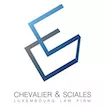- within Litigation and Mediation & Arbitration topic(s)
Administrative Tribunal, 26 July 2023, n. 45.706 and 46.555
Background
A Luxembourg-based company entered into a licensing agreement as the licensee (Licensee), with a licensor (Licensor) regarding intellectual property rights. The agreement granted the Luxembourg company the right to grant sub-license for the IP rights to company of the group situated within the European Union.
Subsequently, the company claimed the partial income tax exemption as outlined in Article 50bis of the Luxembourg Income Tax Law (LITL) and an exemption from net wealth tax.
To qualify for the partial exemption regime under Article 50bis LITL (Luxembourg Income Tax Law), the taxpayer must be recognised as the owner of the relevant intellectual property rights.
In principle, both legal and economic ownership of an asset are vested in the same entity. If this is not the case, the Luxembourg tax principles (cf. paragraph 11 (4) of the Tax Adaptation Law (StAnpG)) stipulate that where there's a misalignment between economic and legal ownership of an asset, the economic owner is treated as the asset's owner under Article 50bis LITL.
Tribunal's opinion
According to the Tribunal, in this particular instance, the intention of the parties within the licensing agreement must be deemed unequivocally clear, as the Licensor had no intention to transfer control over the IP rights, nor did they intend to transfer any fraction of their ownership rights to the Licensee. The right to exploit the IP rights is strictly limited by the licensing agreement and sub-license agreements, with the Licensor retaining control over exploitation.
The argument that the 25-year duration of the licensing agreement, automatically renewable, implies a definitive transfer of the IP rights has not been accepted by the Tribunal. The Tribunal indeed highlighted that the licensing agreement explicitly specifies termination provisions which are not typically found in a sale agreement.
The Tribunal states that it is not possible for a taxpayer to use the principle of economic ownership in order to contradict its own unambiguous documentation, as it should be noted that this principle, as outlined in Paragraph 11 of the StAnpG, solely aims to allow tax authorities and administrative judges to look beyond legal appearances in tax matters and assess the economic reality underlying legal structures. However, as in the present case the true intent of the parties is unambiguous and clearly indicated in the contract, there is no basis to requalify the licensing agreement.
Consequently, the Licensee cannot be considered the owner of the IP, either legally or economically, for the purpose of the IP Box regime.
Furthermore, the alternative argument according to which the Licensee acted solely as an intermediary agent (therefore not entitled to the income generated by the IP assets) as it did not engage in arm's length transactions with the Licensor under the licensing agreement, so that the Licensee could receive the income generated by the IP assets from a tax perspective, was not deemed convincing by the Tribunal.
Please feel free to contact us at info@cs-avocats.lu.
The content of this article is intended to provide a general guide to the subject matter. Specialist advice should be sought about your specific circumstances.

